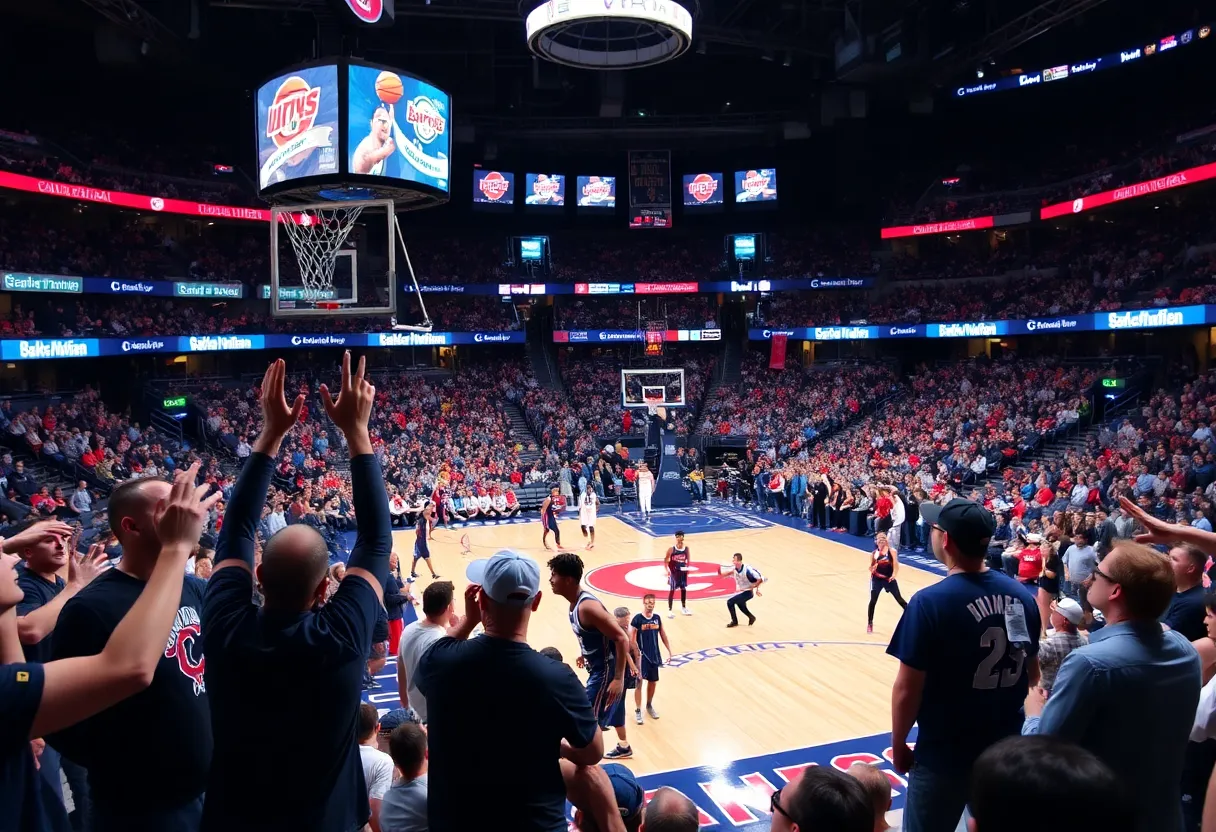News Summary
Kentucky is making significant strides in reducing late-stage lung cancer diagnoses, credited to early screening initiatives. The state now ranks second for lung cancer screening rates, with programs aimed at increasing access for underserved communities. The Bristol Myers Squibb Foundation’s efforts have led to a reduction in late-stage diagnoses and improvements in treatment outcomes. Stories of patients like Asa Weathers and Elizabeth Williams highlight the importance of early detection and targeted therapies in saving lives.
Louisville, Kentucky – Significant progress is being made in the fight against lung cancer in Kentucky, a state that has long held the highest lung cancer death rate in the United States, which is 50% higher than the national average. Recent data indicates a notable decline in late-stage lung cancer diagnoses, thanks in part to a statewide emphasis on early screening initiated after the University of Kentucky Markey Cancer Center obtained National Cancer Institute designation in 2013.
Since this designation, Kentucky has seen the rate of late-stage lung cancer diagnoses drop at double the rate of the national average, showcasing the effectiveness of early detection methods. Currently, Kentucky ranks second in the country for lung cancer screening rates, providing a beacon of hope for patients and their families.
One notable case is that of Asa Weathers, a former smoker who spent 30 years smoking before being diagnosed with stage four lung cancer. Following routine checkups, Weathers underwent aggressive treatment, including chemotherapy and radiation, which highlights the critical importance of early detection in improving outcomes for patients diagnosed with this often-deadly disease.
Across the state, healthcare professionals are witnessing a significant number of cases linked to tobacco use. Dr. Scott Pierce from CHI Saint Joseph Hospital treats over 5,000 cancer patients each year, noting that roughly half of his patients have illnesses attributable to tobacco. Lung cancer, along with cancers of the bronchus, holds the unfortunate title of being the deadliest cancer in the U.S., according to the National Cancer Institute.
Early detection remains vital, as symptoms of lung cancer—such as persistent cough or unexplained weight loss—are often subtle and can lead to diagnoses occurring in later stages. When lung cancer is detected at an early stage, the survival rate improves dramatically, from a mere 4% to as high as 55% when surgical intervention is possible.
Despite the clear benefits of lung cancer screenings, participation among eligible patients remains low. In response to this challenge, the Bristol Myers Squibb Foundation is actively working to enhance access to lung cancer screening, particularly in underserved communities across the state. Their Kentucky LEADS initiative has contributed to a 10% reduction in late-stage diagnoses and has successfully increased screening rates.
Building on the successes in Kentucky, the BMS Foundation has introduced programs like QUILS™ aiming to extend successful screening efforts to other states, including Mississippi and Nevada. Meanwhile, areas such as Los Angeles County, where screening rates hover around 5-6%, have also received attention. A recent grant of $2.5 million was awarded to UCLA Health to help improve access to critical screenings in this region.
Research continues to support the identification of high-risk populations for lung cancer, including veterans with specific risk factors. The landscape of lung cancer treatment is evolving, as the advancements in medicine are enabling better outcomes for patients regardless of smoking history, exemplified by individuals like Elizabeth Williams.
Diagnosed in 2020 after noticing a persistent cough despite never smoking, Williams underwent treatment for lung cancer and was found to have an EGFR mutation, which allowed for targeted therapy that led her to remission. As the CDC reported close to 132,000 lung cancer deaths in the U.S. in 2022, stories like Williams’ serve as encouragement for others to seek early screening and not delay necessary treatment. With advancements in treatment and increased awareness of the importance of early detection, the hope is that more lives can be saved in the fight against lung cancer.
Deeper Dive: News & Info About This Topic
HERE Resources
Additional Resources
- Spectrum News: Cancer Survivor Uses His Second Chance to Help Others
- Bristol Myers Squibb: Lung Cancer Screening Initiatives
- Daily Independent: Kentucky’s Cancer Progress Hangs in the Balance
- LEX18: Lexington Woman Shares Lung Cancer Journey to Encourage Early Screenings
- WDRB: Mobile Lung Cancer Screening Unit Visits Southern Indiana
- Wikipedia: Lung Cancer
- Google Search: Lung Cancer Screening
- Google Scholar: Lung Cancer Early Detection
- Encyclopedia Britannica: Lung Cancer
- Google News: Lung Cancer Initiatives

Author: STAFF HERE LEXINGTON KY STAFF
The LEXINGTON STAFF WRITER represents the experienced team at HERELexingtonKY.com, your go-to source for actionable local news and information in Lexington, Fayette County, and beyond. Specializing in "news you can use," we cover essential topics like product reviews for personal and business needs, local business directories, politics, real estate trends, neighborhood insights, and state news affecting the area—with deep expertise drawn from years of dedicated reporting and strong community input, including local press releases and business updates. We deliver top reporting on high-value events such as Woodland Art Fair, Crave Food and Music Festival, and Railbird Festival. Our coverage extends to key organizations like Commerce Lexington and Blue Grass Community Foundation, plus leading businesses in education, manufacturing, and technology that power the local economy such as University of Kentucky, Toyota Motor Manufacturing, and Lexmark. As part of the broader HERE network, including HEREBowlingGreen.com and HERELouisville.com, we provide comprehensive, credible insights into Kentucky's dynamic landscape.





